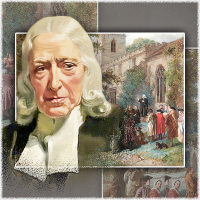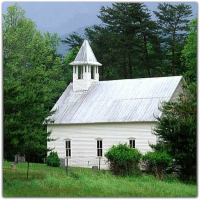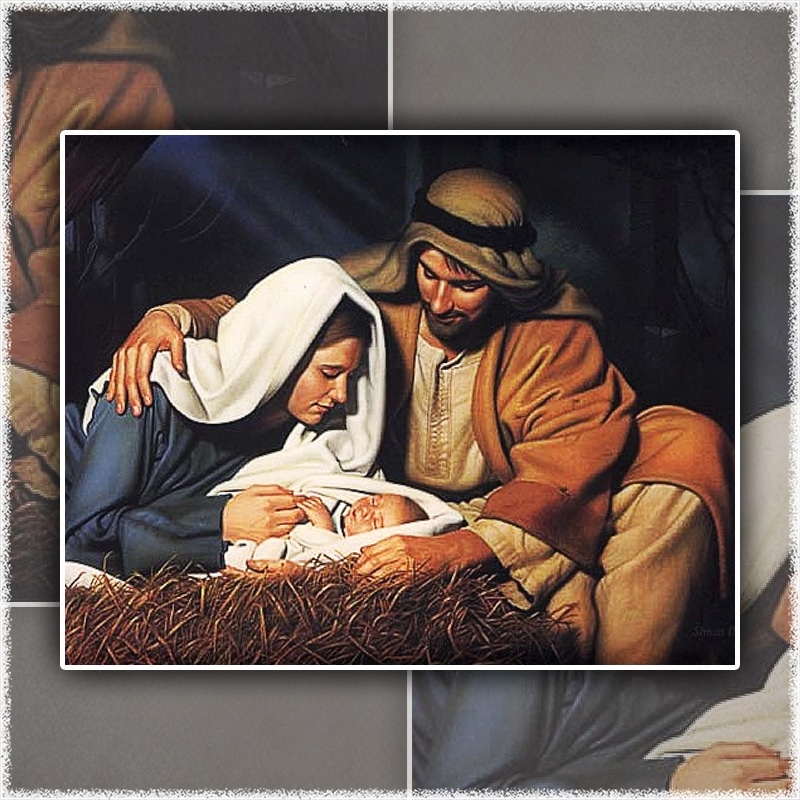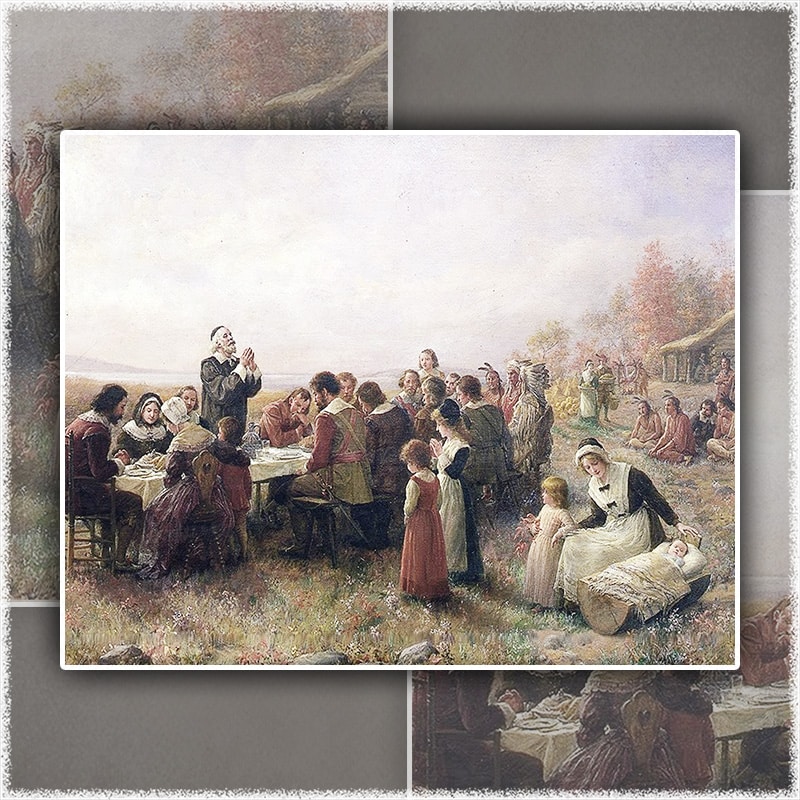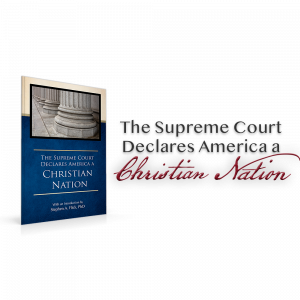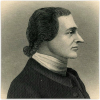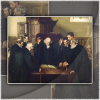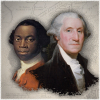The Christian Week and Sabbath
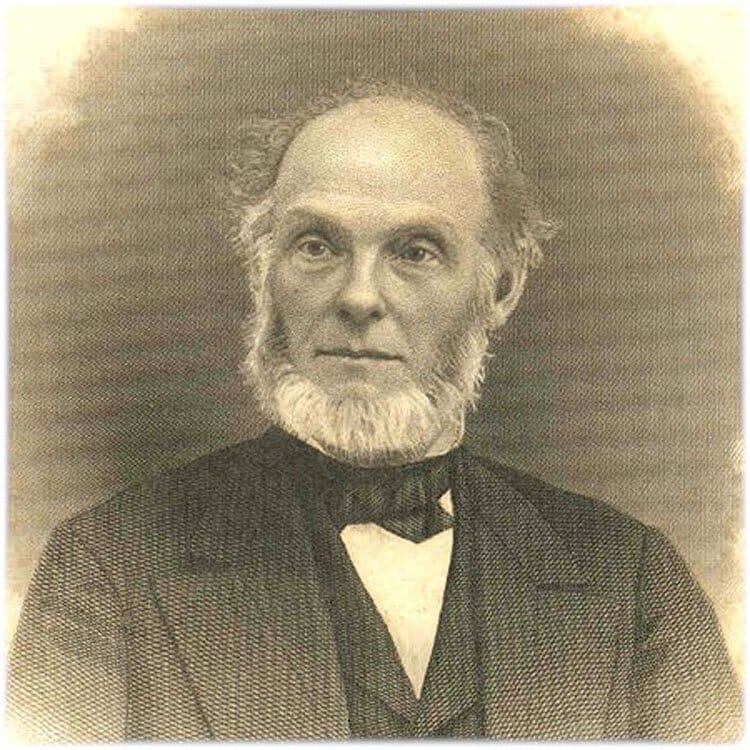
- 115
- 115shares
Daniel Whedon was one of the most distinguished Methodist scholars and churchman of nineteenth-century American Methodism. His interest in the subject of the Lord's Day should be no surprise to the reader given the fact that the subject occupied an important place in Methodist doctrine and practice, but it also was one of great importance to the spiritual life of America from its inception. Unlike Europe, the American colonies were deliberate in their reverence and observance of the Lord's Day. You may read more about his life and ministry at Daniel Whedon: A Biographical Sketch. The following article is taken from Daniel D. Whedon, “The Christian Week and Sabbath.” In Essays, Reviews, and Discourses (New York: Phillips & Hunt, 1887), 313-323.
Daniel D. Whedon
I was in the Spirit on the Lord’s day.
—REV. i, 10
A study of the sacred numbers suggests from its own stand-point a train of thought embracing a view of the argument upon the week and the Sabbath as a creational and permanent institute, and so a part of the Christian dispensation.
Our Scripture motto refutes, at start, the doctrine, that under the Christian dispensation all days are religiously alike. There is one day in seven, incontrovertibly, which inspiration honors, as it does not any one of the other six, with the title, THE LORD’S DAY. Upon this passage, therefore, we shall found our argument: First, that there is in the New Testament a sacred day and a Christian week. Second, that this sacred day is not to be identified with the temporary Sabbatism of Judaism; and is, instead, identical with the perpetual and universal Sabbath of the creation and the Decalogue. The first of our propositions will stand against those who maintain that there is no New Testament Sabbath; and the second against those who maintain the permanent Sabbatism, even in the Christian dispensation, of the Jewish Saturday, and also against those who affirm that all Sabbaths are a temporary and local institution. If there be a Christian sacred day, distinct from Judaism, the authority of our Christian Sabbath is as wide as the world and as lasting as time.
It is self-evident, and, I believe, generally undisputed, that no other than the day of the Lord’s resurrection is or could by eminence be called by St. John in this passage sage the Lord’s clay. If this were doubtful, we prove it as we do the meaning of all other words, by contemporaneous or permanent use. St. John lived at the close of the first century; and it was in the year A. D. 101 that Ignatius declares that Christians “keep the Lord’s day on which Jesus rose from the dead.” In the primitive days the test question put to the Christian martyrs by the persecutors was, Dominicum servasti? —“ Hast thou kept the Lord’s day? “And the reply was, Christianus sum; intromitere non possum—“ I am a Christian; I am not able to omit it.” From that day to this, in no other sense has the phrase Lord’s day ever been used but to designate the day of the Savior’s resurrection.
But we have here established not only a Christian sacred day, but what, though generally unnoticed, is scarcely less important, we have an established Christian week. This Lord’s day is the sacred ONE in a cycle of seven. It is the sacred close of a secular six. And let it be noted that the week is a sacred and religious institution. Unlike the natural divisions of year and month, the sacred division of seven days is simply a commanded religious institute, founded to commemorate the creation, and preserved for the sake of the Sabbath. If, then, under Christianity we have a Christian week perpetuated, it can be for no other purpose than still to commemorate the work of God and still uphold a weekly sacred day.
Of the continued observance, under the Christian dispensation, of week and sacred day, we now adduce the New Testament proofs. Upon the day of the Savior’s ascension—the first Lord’s clay of our dispensation—four times did our Saviour reveal himself. During the six following, now secular days, he withdrew his presence; but again was he in their midst on what, this same John takes care to inform us, was the first day of the week. “And after eight days again his disciples were within, and Thomas with them: then came Jesus, the doors being shut, and stood in the midst, and said, Peace be unto you.” John xx, 26. This visitation measured off for us, indisputably, the first Christian week.
That from this time the Christians had a stated day —in itself nearly a self-evident fact—is clear from the ordinary phrases, When ye come together into one place, etc. 1 Cor. xi, 20. Not forsaking the assembling of your-selves together. Heb. x. 25. Come unto your assembly. Jas. ii, 2. That this was not on the Jewish Saturday, is evident from the fact that St. Paul, who is our main authority for the stated meeting, does, as we shall more fully see, condemn the observance of the Jewish Sabbath. That it was on the first day of the week, is evident from the fact that this is nowhere otherwise stated; and from the fact that the phrases which indicate that there was an ordinary assembling, indicate, also, that the first day of the week was an ordinary day.
On the day of Pentecost—which was the first day of the week—the Jewish Sabbath having been over-past and slighted, “they were all with one accord in one place “—Acts ii, 1—and then took place that effusion of the Spirit, which was, in fact, the founding of the dispensation of the Spirit. St. Paul—Acts xx, 6, 7—comes to Troas on Monday; he waits till the next Sunday, apparently without public preaching, and in order that he could preach on that day. “And upon the first day of the week, when the disciples “—as ordinary matter of course—“ came together to break bread, Paul preached unto them, ready to depart on the morrow; and continued his speech until midnight.” This waiting of the preacher for Sunday—the customary character of the described coming together—the urgency of the preacher fully to discharge his missionary duty before his next day’s departure, all show that the Lord’s day was a most fixed and stated day for the Christian worship at Troas. In confirmation of this, according to the primitive custom of making benevolent contribution at their assemblies for Christian worship (see Justin Martyr’s Apol. i, 67), St. Paul directs the Corinthians, “As I have given order to the churches of Galatia, even so do ye. Upon the first day of the week let every one of you lay by him in store . . . that there be no gatherings when I come.” 1 Cor. xvi, 1, 2. That the public collection was to be taken at their congregation on the Lord’s day is evident; for, first, the whole transaction was ordered in order that the collection might be completed and done with against Paul’s coming; and, second, no motive could exist for naming a particular day but as a proper and convenient day for collection at a regular public meeting. Thus we have inspired evidence, that the stated meetings of Christian worship under apostolic direction at the four distant points of the Christian world, namely, Jerusalem and Corinth, Troas and Galatia, took place, not on the condemned Jewish Sabbaths, but on what inspiration pronounces to be the Lord’s day.
Finally, St. John was in the Spirit on the lord’s day. This day, therefore, on which Christians met for weekly worship, is inaugurated by inspiration as a sacred day. The day of worship—the day of resurrection—it is His day. And as its return is in the regular revolution of seven days, so the weekly cycle is recognized as a Christian period. Christianity is not, therefore, without its week, nor that week without its special day.
Such is our purely New Testament argument. But the argument from the earliest Christian writers in favor of a primitive and universal observance of the Lord’s day is overwhelming. Says the epistle of Barnabas, “We keep the eighth day as a joyful holyday, on which day, also, Jesus rose from the dead.” “No longer Sabbatizing,” says Ignatius, A. D. 101, “but living a life according to the Lord’s day, upon which our life rose from the dead.” “On the day called Sunday,” says Justin Martyr, A. D. 147, “there is a meeting in one place of all the Christians who live either in the towns or in the country;” and then he proceeds to describe the usual Christian worship. Irenaeus, Bishop of Lyons, A. D. 167, says, “On the Lord’s day every one of us Christians keeps the Sabbath.” Theodoret, speaking of a party of Judaizing Christians, the Ebionites, says, “They keep the Sabbath according to the Jewish law, and sanctify the Lord’s day in like manner as we do.” The father of Christian history, Eusebius, says, “That Christ, by the new covenant, translated and transferred the feast of the Sabbath to the saving Lord’s day, in which the Saviour achieved a work superior to the six days’ creation.” Such are the unanimous and uncontradicted testimonies of all antiquity, that the Lord’s day was observed by the whole Christian world from the apostolic age. If the Jewish Saturday be still Sabbath, the whole Christian Church of all ages, with the most insignificant exceptions, is guilty of profanation and worthy of death. If Sunday be not the sacred day, the whole Christian world, and especially the purest part, has been involved in a voluntary Jewish superstition. And so we think that our argument, historical and scriptural combined, furnishes, to say the least, a reliable presumption that Sunday has been observed as a sacred day, not only from the time that John pronounced it the Lord’s day, but from the time that by the resurrection of Christ it became the Lord’s day. We next affirm, IL The Christian sacred day was different from the transient Judaic national and ritual Sabbaths.
Under Moses’ law, Israel kept, on the same day, a twofold Sabbath. By the institution of the week, with its closing Sabbath, Israel commemorated the great week of the creation and the divine rest which followed it; and hence this is assigned in the Decalogue as a fundamental reason of keeping Sabbath. But laid additionally upon this was a Sabbatism which, 1. Commemorated the national emancipation and independence of Egyptian bondage. “Remember that thou wast a servant in the land of Egypt, and that the Lord thy God brought thee out thence through a mighty hand and by a stretched out arm: therefore the Lord thy God commanded thee to keep the Sabbath day.” Deut. v, 15. It was also, 2. To be a sign of covenant between God and Israel. “It is a sign between me and you throughout your generations.” 3. The national punishment of death was inflicted. “Every one that defileth it shall surely be put to death.” Exod. xxxi, 13, 14. 4. The Jewish Sabbatism was to be kept with a strictness possible only in certain latitudes. “Ye shall kindle no fire throughout your habitations upon the Sabbath day.” Exod. xxxv, 3. 5. The week of days was involved into a higher week of years, and a Sabbath of the seventh year was nationally appointed. Lev. xxv, 4. The year-week was involved into a still higher week of seven sevens of years; so that at the end of the seven-year week of forty-nine years, the fiftieth year was at once a jubilee and a Sabbath year. Lev. xxv, 10. And then it is to be noted that the Jewish word Sabbath, by an extension of conversational language, became extended so as to include, perhaps, every holy day.
But it must follow, from the very nature of the case, that such a Sabbath as this—a weekly celebration of Jewish independence—a sign between God and the Jewish nation—to be kept with a rigor which would limit it to a peculiar climate—to be punished with a severity peculiar to a particular code—accompanied with a round of septennial and semi-centennial Sabbaths must be national and temporary. Even if occurring on the same day of the week with the creational Sabbath, this super-added Sabbath upon a Sabbath is bound to perish with the dispensation to which it belonged.
But it is by no means certain that the Jewish Saturday-Sabbath is identical in day with the original creational Sabbath. So far forth as there was a week, that week celebrated indeed the work of the creation; and inasmuch as there was a Sabbath at the close of that week, certainly the ineffable Sabbath repose of the primal Creator was thereby celebrated. The Decalogue first given to the Jewish nation did indeed command the week to be still preserved and its seventh day Sabbath to stand at its close. But the Decalogue (lid not prescribe on which day the week should begin or end. The weekly wheel was still to roll; but it was not named at which spoke of the wheel the count was to commence. Those who maintain that the abolition of the Jewish Sabbath must be the abolition of the creational, are bound to show their identity in day. The burden of proof is with them; but the weight of proof is against them. The sacred narrative of the introduction of the Jewish Sabbath contains a plain implication of the revival of a decayed commemoration, the very day of which was forgotten. The Jews are obliged to be informed, at the first mention of Sabbath unto them, as a thing unknown. “To-morrow is the rest of the holy Sabbath.” Exod. xvi, 23. “To-day is a Sabbath unto the Lord.” Verse 25. It appears also plain that upon the fourteenth day previous the Jews had been, under the divine direction, engaged in a wearisome march. It is also evident that the day was selected to commemorate the day of deliverance from Egypt. And as in commemoration of that event a new month was made to begin the year, so a new day was probably made to close the week. The abolition, therefore, of the Jewish Saturday-Sabbath does not include the abolition of the creational Sabbath.
Now, the Jewish Saturday-Sabbath was abolished. “Let no man therefore judge you,” says the apostle, “in meat, or in drink, or in respect of a holy day, or of the new moon, or of the Sabbath days: which are a shadow of things to come; but the body is of Christ.” Col. ii, 16, 17. In regard to this and parallel passages, which we shall soon quote, two things are to be proved; namely, first, They do not involve the non-observance of the Lord’s day of the Christian week; second, They do involve the abolition of the Jewish Sabbath; and, third, They consequently involve the abolition of the Saturday-Sabbath.
First. That Paul does not intend to forbid the obligation to keep a Christian sacred day, is plain from the fact that it is against the relics of Judaism that he is inveighing. He would strip the Christian converts of circumcision, new moons, and all the badges of the old ritual. “Ye observe days, and months, and times,” says he to the Judaizing Galatians; “I am afraid of you, lest I have bestowed upon you labor in vain.” But certainly the keeping a Christian Lord’s day would be rather a badge of Christianity than of Judaism, and could involve no fear. The Lord’s day was anti-Judaic. 2. It is plain that St. Paul did respect the Christian Lord’s day at Troas, and did command the observance of a “day,” both to the Corinthian and Galatian churches; namely, a day of public collection, and that day the Lord’s day.
His condemnation of the observance of “days” no more condemned the observance of the Lord’s day than of one’s birthday. 3. It is plain, from the early Christian writers, that in the New Testament the word Sabbath had temporarily sunk to be a sort of Jewish partisan word, to designate the Jewish Saturday, and that in especial opposition to the new Lord’s day. Of the Ebionites, for instance, who were the remains of the very Judaizers whom Paul condemns in these passages, Theodoret says, “They Sabbatize as the Jews, and sanctify the Lord’s day as we.” “Not Sabbatizing,” says Irenaeus, “but living according to the Lord’s day.” The condemnation, therefore, of the partisan Sabbath generally coincided with an observance of the Christian sacred day. Neither St. Paul nor Irenaeus forbade the Lord’s day, when they, in the then common meaning of the word, condemned Sabbaths. 4. Just so a Puritan might say to a set of men relapsing into Romanism, “0 ye are beginning to keep holy days; I am afraid of you I” Should the Puritan be told that he himself kept a holy day in the Christian Sabbath, he might reply just as St. Paul might have replied, Very true, but very impertinent; for it is plain that whatever may be the abstract meaning of the words, I had not, in condemning holy days, the Christian Sabbath at all in my mind, and, therefore, did not condemn it. 5. Finally, if St. Paul really condemned and ignored all days, he stands in opposition to St. John, for he recognized and observed a day, even the Lord’s day. And we may add, he stands in opposition to the Lord himself, who revealed his glorious person to St. John in the very act of being “in the Spirit,” and recognizing the Lord’s day. So far, then, from making void the Christian Lord’s day, St. Paul confirmed it. He abolished its rival. He swept away the Jewish rubbish to make way for time Christian edifice.
But we are, second, to prove that he did abolish the Jewish Sabbath. Yet this seems hardly necessary, for we have already abundantly shown the Jewish Sabbath absolutely perished with the Jewish dispensation. And, although the word Sabbaths, in the lime of the apostle, was undoubtedly extended so as to include other sacred days, yet it can hardly be supposed that he did not mean to condemn in the word Sabbath the very day which the word specifically designated. Moreover, to show that the weekly Sabbath was intended, he additionally specifies the other sacred days which the word sometimes included. It is plain that he classed the Jewish Sabbath with circumcision as a null institution, which could be innocently observed only when it did not involve some relapse into Judaism. Writing to the Romans he considered it a matter indifferent. Writing to the Galatians he denounces it as a symptom of Jewish apostasy.
We are to prove that the abolition of Jewish Saturday Sabbatism involved the abolition of all Saturday Sabbatism. On this we may remark, 1. As we have before shown that Saturday can furnish no proof of having been the very day of the creational Sabbath, the abolition of its Judaic claims leaves it on a level with the rest of the week. 2. St. Paul’s condemnation of all observance of the Jewish Sabbaths condemned all Christian observance of the day on which they stood. For he condemns not a particular mode of keeping, but all keeping of the day whatever. He knows no Christian way of keeping the Jewish “day.” 3. St. Paul so condemned the “day” that his converts were justly en-titled to consider it, as no doubt they did consider it, as no Sabbath and no sacred day in any sense whatever. They did, without a rational doubt, feel not only entitled but bound to sink it to the ordinary rank of the other secular days of the week. They were fully entitled to labor at their ordinary business during its hours, and to hold that, so far forth as it was concerned, no Christian Sabbath existed. 4. All this is amply con-firmed by the fact that the early orthodox Christians seem not only to have sunk its claims, to have overpast it with neglect in order to hold their convocations on Sunday, but even to have set keeping the Lord’s day in orthodox opposition to Judaic and heretical Sabbatizing.
On the whole, if we have in this article attained our object, we have proved that there is a Christian sacred day; and that it is not Saturday, and can, therefore, be no other day than Sunday. The perpetual and universal Sabbath, its only inheritor, must be the same sacred day; and so Sunday is the Sabbath of the creation and Decalogue.
America deserves to know its true heritage.
Please contribute today!
* Christian Week and Sabbath *
* Christian Week and Sabbath *
* Christian Week and Sabbath *
* Christian Week and Sabbath *
* Christian Week and Sabbath *
* Christian Week and Sabbath *
* Christian Week and Sabbath *
* Christian Week and Sabbath *
* Christian Week and Sabbath *
* Christian Week and Sabbath *
* Christian Week and Sabbath *
* Christian Week and Sabbath *
- 115
- 115shares

